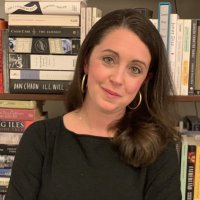Claudia Ballard of William Morris Endeavor

I’m a loyalist, but when it comes to fiction I might encourage a novelist to “cheat” on their manuscript with a new piece of writing. Often when I’m talking to a writer about their novel, or when we’re working through a difficult draft, I discover they’ve been writing something else on the side. When you’ve been working on something for a long time it can be freeing and energizing to have something new that has no pressure on it, to have the creative space to just explore and build.













